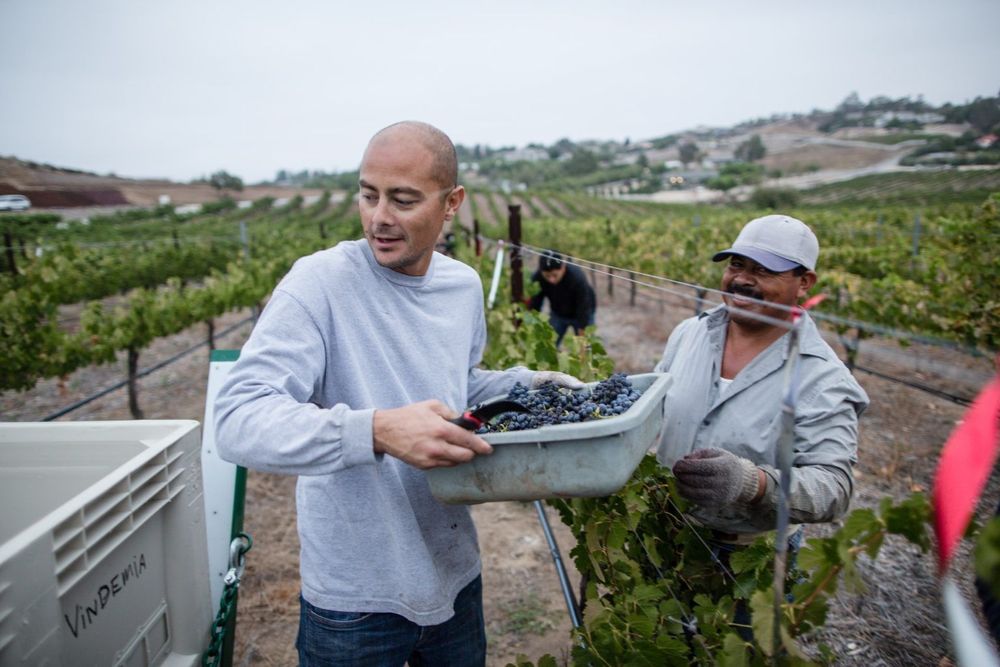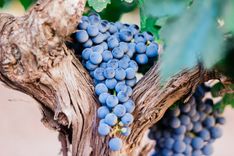
What it’s Like to Work in a Vineyard
There is something therapeutic about tending to the earth. The smell as you aerate the soil, seeing the dirt on your hands from pulling weeds, and feeling warm breeze float over your skin. It’s a vivid image. It makes you feel connected to the planet. It’s no surprise people are opting for jobs where they get to do this every day. One of the places you can work with your hands, taking care of plants, and enjoying the outdoors is in a vineyard.
Vineyard workers sometimes referred to as a vigneron, are the essential backbone of the wine industry. Without these people, there would be no grapes and therefore no wine. Their work is physically demanding but if you speak to any vigneron they will tell you it’s incredibly rewarding.
Tending to the vines comes with a lot of responsibility. Many of the vines are hundreds of years old. Vineyard hands are not just managing grapevines, they are actually keeping the story and history of these vines alive. In fact, many of the world's leading winemakers began their careers as vineyard hands.
Vineyard work is also a great way to expose yourself to the wine industry and see if it’s a viable career path for you. There are lots of people who will even pick up seasonal work in a vineyard just to be part of the process. Now let’s dive into the day-to-day responsibilities of a vineyard worker to get a better understanding of just how important they are to the wine industry.
What is a Typical Day for a Vineyard Worker?
If you ask any farmer they will tell you there is always work to be done. The same holds true on a vineyard. However a typical day working as a vineyard hand will vary depending on the time of year, the growing conditions, and overall goal the vintner is trying to achieve in the fruit.
But generally, the work can be broken down into seasons. Although not all growing regions have a full 4 seasons, they will still have active growing periods and off periods.
Spring
Spring is the most exciting time in a vineyard. It’s a period of rebirth with everything coming back to life. It’s dedicated to preparing for the upcoming growing season. During the early spring, the focus of work is on maintenance. Workers a responsible for,
- Cleaning up from the winter months
- Uncovering or unwrapping the vines
- Removing any damaged branches
- Reinstalling irrigation lines
- Fixing or installing trellises
This time of year is also when vineyard hands will begin planting cover crops. Floor maintenance is an important process that helps prevent diseases, fungus, and weed growth. Dead leaves, sticks, and other decaying vegetation will be removed and newly planted crops will take their place. These will cover the vineyard floor to choke out weeds and prevent damage to the vines.
Vineyards are always looking to maximize and the amount of high-quality fruit they produce. Many also like to experiment with new soil conditions and grape varietals. So it’s common for hands to plant new vines or varietals or move existing vines to new soil to see how successfully they will grow.
Summer
The summer is the active growing season for the vines. They will begin to produce fruit and the work shifts towards vine management. Vineyard hands will be busy pruning the vines, removing suckers that use the vine’s energy but are not useful. Vintners will sometimes have workers remove a certain portion of unripened grapes. This is to force the vine to put more energy into the remaining fruit. This will produce sweeter grapes. Some vineyards will also choose to fertilize during this period.
The vintner will be monitoring how the grapes are ripening and may choose to adjust the level of irrigation. They may even decide to cover the grapes if the temperatures are extremely hot. The vineyard hands will take care of these tasks. The vintner is always thinking about what characteristics they want in the final grape. The year's growing conditions and climate will determine which interventions the vintner will implement. The overall goal of this season is to get the grapes ready for harvest.
Fall
Harvest is the most labor-intensive time of year in a vineyard. This will happen in the late summer to the beginning of fall.The specific date depends on how the grapes are ripening, how much rain they had this vintage, how hot it was, and several other factors.
Some vineyards will use machinery to harvest the grapes but most will harvest by hand. This prevents damage to the grapes. Vineyard hands and usually seasonal hires will pick the grapes. The grapes need to be picked within a short time frame to make sure the level of ripeness is consistent.
The later part of the fall is dedicated to preparing the vines for winter or their dormant period. Workers will heavily cut back the current season’s new growth. Some vineyards will bury their vines to protect them from the harsh winter temperatures. Others will wrap them in burlap or choose to leave them alone.
Any vines that need to be transplanted next year will also be dug up and overwintered. General maintenance work to prepare the vineyard for the winter months will also continue.
Winter
The winter or off-season is the slowest time of year in a vineyard. The work is centered around repairs and equipment maintenance. During the winter months, cuttings will be propagated in greenhouses to get ready to plant in the spring.
If the vineyard has a winery on-site as well, the focus will shift to the winemaking process.
What Qualifications are Needed to Work in a Vineyard?
There are no specific qualification requirements to work in a vineyard. Except for an interest in viticulture.
Most of the work being done is manual labor and the vineyard will provide the training needed. It’s necessary for you to be certified to operate heavy machinery. These certificates can be done through several trade organizations and don’t take much time to complete.
Some vineyard hands will have certificates in horticulture, viticulture, or agriculture. But it’s not a prerequisite. Many vineyard hands will begin their winemaking careers with hands-on learning in the vineyard. It sets the perfect foundation for when they begin the theory side of winemaking.
In Review: A Day in a Vineyard
Working in a vineyard is labor-intensive. But it can be a very rewarding career path. The day-to-day task will depend on the growing region the vineyard is in as well as the season. But you can be sure you will always be kept busy as a vineyard hand with new tasks popping up constantly. It’s exciting to work in a position where you can quite literally see the fruits of your labor.
This is an entry-level position that can set the foundation for future learning. For those who enjoy on-the-job training, it’s a perfect position to gain a lot of experience and open up further career opportunities. Look for wine jobs that fit your qualifications today!
Like this? Here are some other aritlces you may like

How to Become a Winemaker
Do you want to learn to make wine? Winemakers have the techniques and skills required to make this delicious beverage!

How To Get a Job in the Wine Industry
The wine industry is one of the most lucrative industries today. With a variety of jobs available , it's no wonder that people are looking to get involved!

The Different Sommelier Levels and How to Get Them: What They Mean for Your Career
There are many different levels of sommeliers and each level can have an affect on a person’s career. Let’s talk about each of them.
